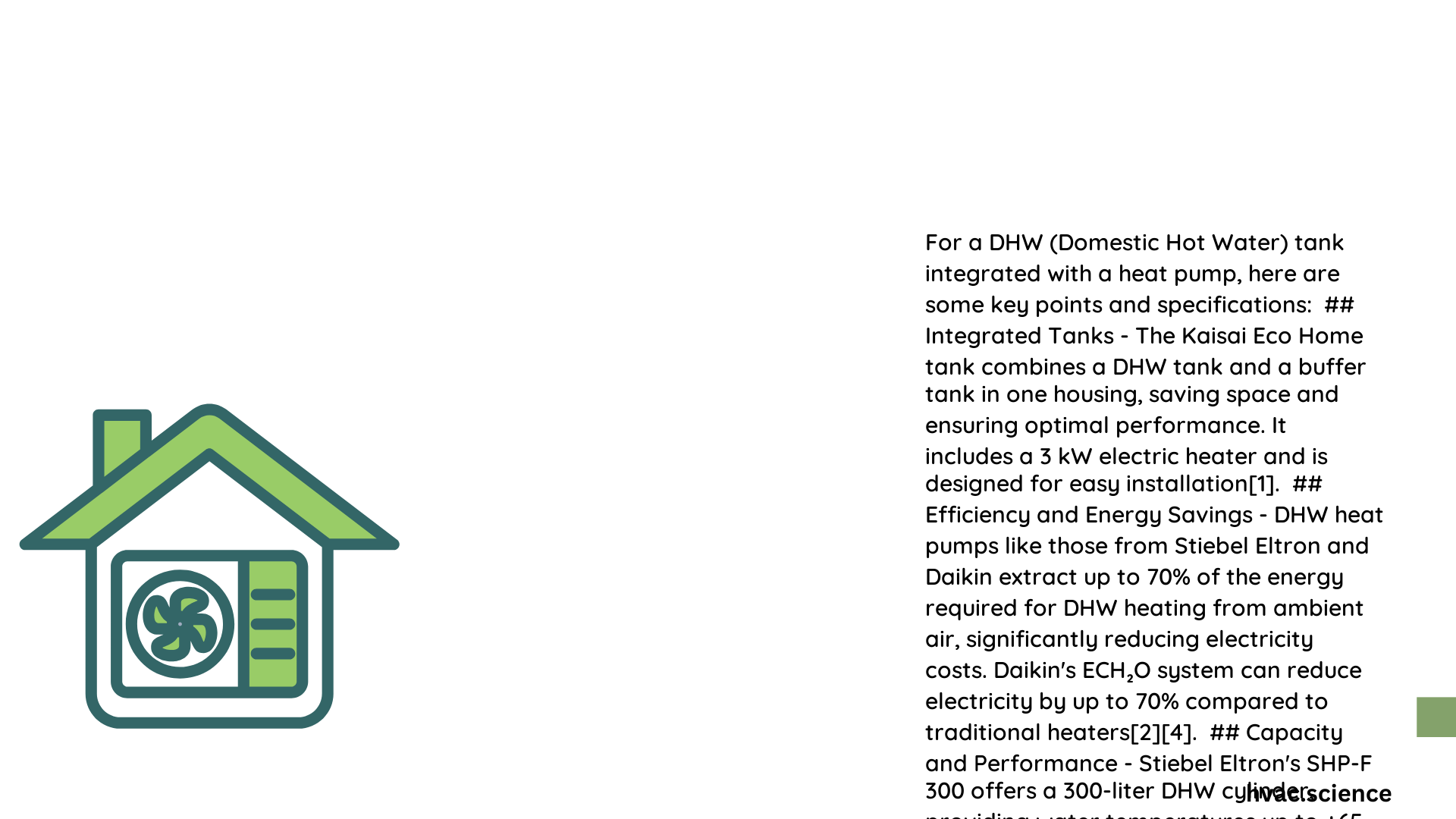Heat pump domestic hot water (DHW) tanks represent a sophisticated solution for efficient home water heating, combining advanced thermal transfer technology with strategic energy management. Homeowners can significantly reduce energy consumption and operational costs by selecting the right DHW tank capacity, understanding thermal dynamics, and implementing proper installation techniques for their heat pump water heating system.
What Makes DHW Tank Critical for Heat Pump Performance?
Why Tank Size Matters in Heat Pump Systems?
Heat pump DHW tanks are not just storage containers but critical components that directly influence system efficiency. The tank’s capacity determines:
- Thermal energy storage potential
- Recovery rate of hot water
- Overall system performance
- Energy consumption patterns
Tank Capacity Recommendations
| Household Size | Recommended DHW Tank Capacity | Efficiency Impact |
|---|---|---|
| 1-2 Members | 50-60 gallons | High |
| 3-4 Members | 65-85 gallons | Very High |
| 5+ Members | 85-120 gallons | Maximum |
How Do Heat Pump DHW Tanks Differ from Traditional Tanks?
Unlike conventional water heaters, heat pump DHW tanks feature:
- Enhanced insulation layers
- Advanced heat exchange mechanisms
- Larger thermal storage capacities
- Integrated heat pump technology
- Smart temperature management systems
What Technical Specifications Determine DHW Tank Efficiency?

Which Factors Influence Heat Pump Water Heater Performance?
Key performance determinants include:
- Coefficient of Performance (COP): Measures energy transfer efficiency
- Energy Factor (EF): Indicates overall system effectiveness
- Temperature Range: Optimal operating temperatures
- Recovery Rate: Speed of water reheating
What Installation Considerations Maximize DHW Tank Effectiveness?
Critical installation parameters:
- Minimum room volume: 450-700 cubic feet
- Ambient temperature range: 40-90°F
- Electrical requirements: 208/240-volt circuit
- Proper ventilation
- Adequate clearance around the unit
How to Select the Right DHW Tank for Heat Pump?
What Sizing Strategies Ensure Optimal Performance?
Sizing strategies involve:
- Calculating household hot water demand
- Considering peak usage periods
- Evaluating family size and lifestyle
- Analyzing local climate conditions
What Cost Considerations Impact DHW Tank Selection?
Cost factors include:
- Initial equipment investment
- Installation expenses
- Long-term energy savings
- Potential tax credits/rebates
- Maintenance requirements
What Maintenance Practices Extend DHW Tank Lifespan?
How Can Homeowners Optimize Heat Pump Water Heater Performance?
Recommended maintenance practices:
- Annual professional inspection
- Regular filter cleaning
- Monitoring anode rod condition
- Checking electrical connections
- Verifying refrigerant levels
Expert Recommendations for DHW Tank Investment
What Should Homeowners Prioritize?
Top considerations:
- Energy efficiency ratings
- Manufacturer warranty
- Professional installation
- Compatible with home infrastructure
- Long-term cost-effectiveness
Technical Insights and Future Trends
What Innovations Are Emerging in DHW Tank Technology?
Emerging trends include:
- Smart connectivity
- Predictive maintenance capabilities
- Enhanced thermal storage materials
- Integration with renewable energy systems
Reference:
– Energy Star Heat Pump Water Heater Guidelines
– Department of Energy Efficiency Standards
– AHRI Performance Certification
